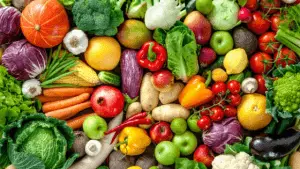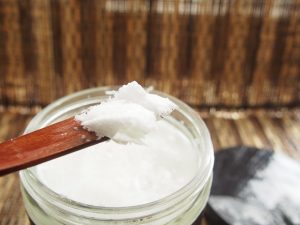High Fiber Foods That Help Relieve Constipation
The Best High Fiber Foods That Help Relieve Constipation

When you buy through links on our site, we may earn an affiliate commission at no additional cost to you (learn more)
Constipation is a symptom, not a medical condition. It is usually a sign or some other problem, which can be anything from a poor diet to a severe illness or reaction to medication. If you regularly experience constipation, you should see your doctor to rule out more severe problems or to determine the source of your issues.
Being constipated simply means you have trouble using the bathroom. It can mean you do not go for several days, that it is hard to go, or that your stools are very firm and difficult to pass. For stool to pass easily from your body, it needs the right consistency, which is usually achieved through the proper balance of hydration and fiber.
The Role of Fiber in Constipation
Plants contain certain carbohydrates that our bodies cannot break down and absorb. These are known as natural fibers, and while they are not digestible, they serve a crucial role in digestion. As digested foods move through your system, what remains are the waste products. Fiber adds bulk to these wastes and helps them pass easily and quickly from your body.
Without the proper amount of fiber in your diet, feces remains inside your intestines for a long time, it can become compacted and hard to pass, and you become constipated. Eating a diet high in natural sources of fiber from plants helps to prevent this symptom and keep your digestive system moving along healthily.
There are two types of fiber in plants, both of which are necessary for good digestive health. Soluble fiber dissolves in water and, once it enters the colon, it is readily fermented into gases and necessary by-products like short-chain fatty acids that feed the healthy bacteria of your gut biome. Soluble fiber is sometimes called a prebiotic because it feeds these helpful microbes and keeps them healthy. This type of fiber also helps you feel fuller longer.
Insoluble fiber does not dissolve in water. This is what provides bulk to your stool and collects unwanted waste products inside the colon as it descends toward your rectum. Some types of insoluble fiber also promote fermentation and feed your gut microbiome, and these are known as resistant starches.
Best High-Fiber Foods for Constipation
Eating a balanced diet that is rich in plant-based sources of fiber will help to alleviate constipation and keep your digestive system running regularly. The following are the best sources of both soluble and insoluble fiber, both of which are important for gut health.
Fruits
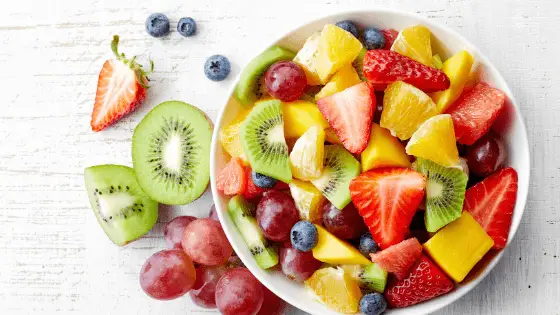
Eating raw or lightly cooked fruits provides you with a substantial amount of your recommended daily fiber intake. Fruits should be in their natural form, not in processed foods or as a part of a sugary dessert. The more fruit is cooked or processed, the more of its natural fiber is broken down. The best fruit sources of fiber include:
- Pears- The average pear has over 5 grams of fiber, making them an excellent choice for relieving constipation. Pears are also high in sorbitol, a natural laxative that can help relieve constipation.
- Apples- One medium apple has over 4 grams of fiber. Apples also contain pectin, which is a natural compound that has been found to relieve constipation effectively.
- Citrus Fruits- Grapefruit, oranges, nectarines, and mandarins are reliable sources of fiber. You can get about 4 grams of fiber from an orange and slightly less from a grapefruit. It is crucial to eat the whole fruit, not just drink the juice, which is devoid of the natural fiber.
- Kiwi- A single kiwifruit has over to grams of fiber. Kiwis contain an enzyme called actinidin, which is known to enhance gut motility and improve bowel movements for those with constipation.
- Figs- As a fresh fruit, figs have just under 2 grams of fiber per fruit, and dried figs boast a whopping 7 grams per half-cup serving. Figs contain ficain, an enzyme like the one found in kiwi that improves the movement of wastes through the colon.
Many of the fruits that are highest in fiber are wonderful in dried form, as well. These dried fruits make excellent snacks and can help maintain regularity. Use caution with dried fruits, and they are often extremely high in sugar, so a little goes a long way. In addition to dried figs, as we previously shared, the most widely known constipation relief is prunes. These dried plums have about 2 grams of fiber per single ounce, and they are high in sorbitol, a natural laxative that stimulates bowel movement. They are also highly beneficial for your gut bacteria.
Nuts and Seeds
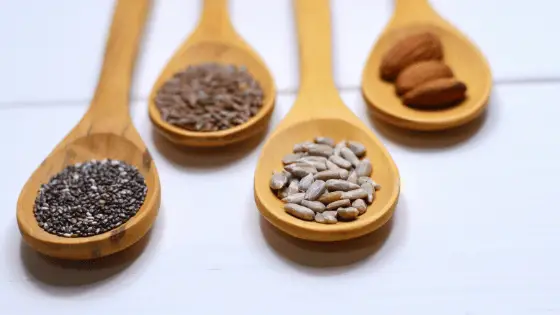
Nuts and seeds are essential sources of fiber in your diet. Chia seeds, for example, provide over 40 percent of your daily fiber needs in a one-ounce serving. The chia has both soluble and insoluble fiber, too. Flaxseeds are another common remedy for constipation, and like flax, they contain both types of fiber. The fiber in these and other seeds draws water into the intestine and shortens transit time, giving you more consistent bowel movements.
Dark Leafy Greens and Cruciferous Vegetables

Spinach, collards, kale, and other leafy greens are excellent sources of fiber for your diet. They also supply many other nutrients that help keep your digestive system healthy. While eating the raw is best, even cooked greens still retain a lot of fiber and are excellent for preventing constipation. Just be sure not to add too much salt, which can make constipation worse.
Other vegetables like Brussels sprouts, broccoli, cauliflower, cabbage, and bok choy are also excellent additions for bulking up your diet and providing you with more necessary fiber.
Starchy vegetables like sweet potatoes, artichokes, and rhubarb are also excellent choices. Each contains distinct compounds that improve digestion along with considerable amounts of dietary fiber. Jerusalem artichokes (sunchokes) and chicory also contain a form of soluble fiber that promotes gut health.
Whole Grains and Legumes
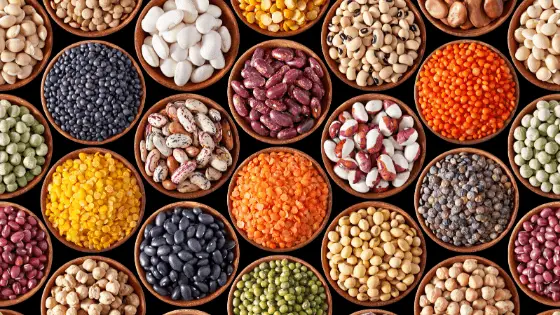
Those grains that still contain the bran, husk, or hull are the best sources of soluble fiber. The more processed, milled, and ground a grain is, the less fiber it retains. Good grains include oatmeal, barley, and rye.
Beans, lentils, peas, and other legumes are also excellent plant-based sources of protein that are also high in dietary fiber and other nutrients necessary for digestion.

